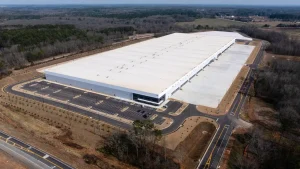Three Trends Shaping the Future of Small Businesses in 2025
The business landscape is constantly evolving, and small businesses, the backbone of many economies, must adapt to survive and thrive. As we look towards 2025, three key trends are emerging that will significantly impact how small businesses operate, compete, and connect with their customers: the rise of hyper-personalization driven by advanced AI, the increasing importance of sustainable and ethical practices, and the continued blurring of lines between physical and digital realms, creating an omnichannel experience. These trends present both challenges and opportunities for small businesses, and understanding them is crucial for navigating the future.
Hyper-personalization, fueled by rapid advancements in artificial intelligence and machine learning, is poised to revolutionize customer engagement. No longer limited to simple recommendations based on past purchases, AI-powered tools will enable small businesses to anticipate customer needs, tailor product offerings and marketing messages to individual preferences, and create highly customized experiences across all touchpoints. This shift towards individualization demands a deeper understanding of customer data and behavior. Small businesses will need to leverage AI-powered analytics platforms to gather and interpret data from various sources, including website interactions, social media engagement, and purchase history. By harnessing this information, they can create personalized product recommendations, targeted marketing campaigns, and customized customer service interactions, ultimately fostering stronger customer loyalty and driving revenue growth. However, the ethical implications of data collection and privacy must be carefully considered, requiring businesses to prioritize transparency and ensure compliance with data protection regulations.
Sustainability and ethical business practices are no longer optional but rather a consumer expectation. Consumers, particularly younger generations, are increasingly conscious of the environmental and social impact of their purchasing decisions. This conscious consumerism is driving demand for businesses that prioritize ethical sourcing, sustainable manufacturing, and transparent operations. Small businesses can capitalize on this trend by embracing eco-friendly practices, supporting fair labor standards, and actively engaging in community initiatives. This can manifest in various ways, from using recycled packaging and reducing their carbon footprint to partnering with local suppliers and supporting social causes aligned with their brand values. By showcasing their commitment to sustainability and ethical practices, small businesses can attract and retain customers who value these principles, building a strong brand reputation and fostering long-term growth. Furthermore, embracing sustainable practices can also lead to cost savings through reduced energy consumption and waste management, enhancing overall profitability.
The convergence of physical and digital worlds, often referred to as the omnichannel experience, is reshaping how businesses interact with customers. Consumers expect seamless and personalized experiences across all channels, whether they’re browsing online, shopping in-store, or interacting with a brand on social media. This necessitates a unified approach to customer engagement, requiring small businesses to integrate their online and offline operations, offering consistent branding, messaging, and customer service across all touchpoints. This means ensuring a smooth transition between online browsing and in-store purchases, offering personalized recommendations based on both online and offline interactions, and providing consistent customer support regardless of the channel used. Investing in technologies that facilitate this integration, such as CRM systems, inventory management software, and omnichannel marketing platforms, will be critical for small businesses looking to thrive in this evolving landscape.
Further developing the theme of hyper-personalization, the use of AI will extend beyond personalized marketing and customer service. AI-powered tools will also play a crucial role in streamlining internal operations, optimizing supply chains, and enhancing decision-making. Small businesses can leverage AI for tasks such as inventory forecasting, demand prediction, and pricing optimization, improving efficiency and reducing costs. AI-driven analytics can also provide valuable insights into customer behavior and market trends, enabling businesses to make data-driven decisions and identify new growth opportunities. While implementing AI solutions may require initial investment, the long-term benefits in terms of increased efficiency, improved decision-making, and enhanced competitiveness make it a worthwhile investment for small businesses.
The emphasis on sustainability will also transcend environmental concerns to encompass social responsibility and ethical business practices. Consumers are increasingly scrutinizing businesses’ labor practices, supply chain transparency, and commitment to social causes. Small businesses can differentiate themselves by implementing fair labor standards, promoting diversity and inclusion within their workforce, and actively supporting local communities. This can involve partnering with local organizations, donating a portion of profits to social causes, or implementing employee volunteer programs. By demonstrating a genuine commitment to social responsibility, small businesses can build trust with consumers, enhance their brand reputation, and attract socially conscious employees.
The omnichannel experience will continue to evolve, incorporating emerging technologies such as augmented reality (AR) and virtual reality (VR). AR and VR can enhance the customer experience by providing immersive product demonstrations, virtual store tours, and personalized shopping experiences. Small businesses can leverage these technologies to create engaging and interactive experiences that differentiate them from competitors and enhance customer engagement. While the adoption of AR and VR may still be in its early stages, exploring these technologies and experimenting with their applications can position small businesses at the forefront of innovation and provide a competitive edge.
Furthermore, the rise of the creator economy and influencer marketing will present new opportunities for small businesses to reach their target audiences. Partnering with relevant influencers can help small businesses reach a wider audience, build brand awareness, and drive sales. By carefully selecting influencers whose values align with their brand, small businesses can effectively connect with their target demographic and build authentic relationships with their customers.
Cybersecurity will become increasingly critical for small businesses as they navigate the digital landscape. With the increasing reliance on online transactions and data collection, small businesses will need to invest in robust cybersecurity measures to protect sensitive customer data and prevent cyberattacks. This includes implementing strong passwords, regularly updating software, and investing in cybersecurity training for employees.
Finally, the importance of building a strong online presence will continue to grow. Small businesses will need to invest in developing a professional website, engaging on social media, and optimizing their online content for search engines. This will require a comprehensive digital marketing strategy that encompasses search engine optimization (SEO), social media marketing, and email marketing. By building a strong online presence, small businesses can reach a wider audience, build brand awareness, and drive online sales.
In conclusion, the small business landscape in 2025 will be shaped by the forces of hyper-personalization powered by AI, a growing emphasis on sustainability and ethical practices, and the seamless integration of physical and digital experiences in an omnichannel world. By understanding and adapting to these trends, small businesses can position themselves for success in the ever-evolving business environment. Embracing these changes will not only enable small businesses to survive but thrive, fostering strong customer relationships, enhancing operational efficiency, and securing a sustainable future. The key lies in embracing innovation, prioritizing customer experience, and operating with integrity, building a strong foundation for long-term growth and success.











